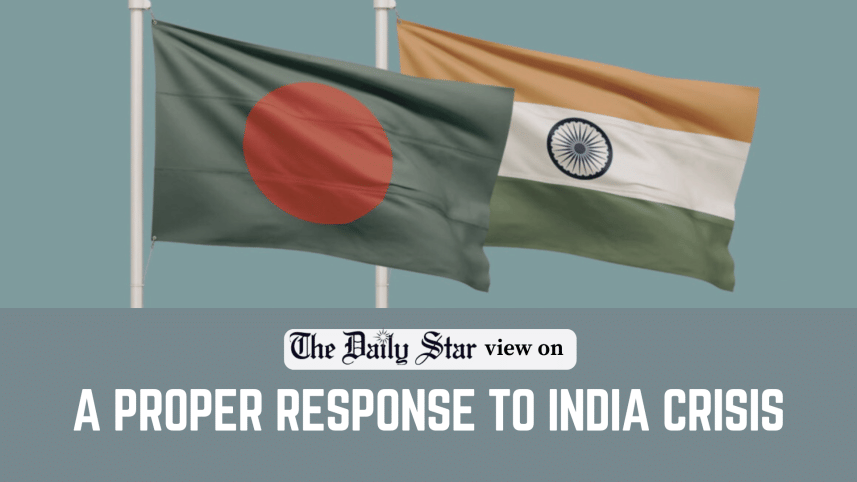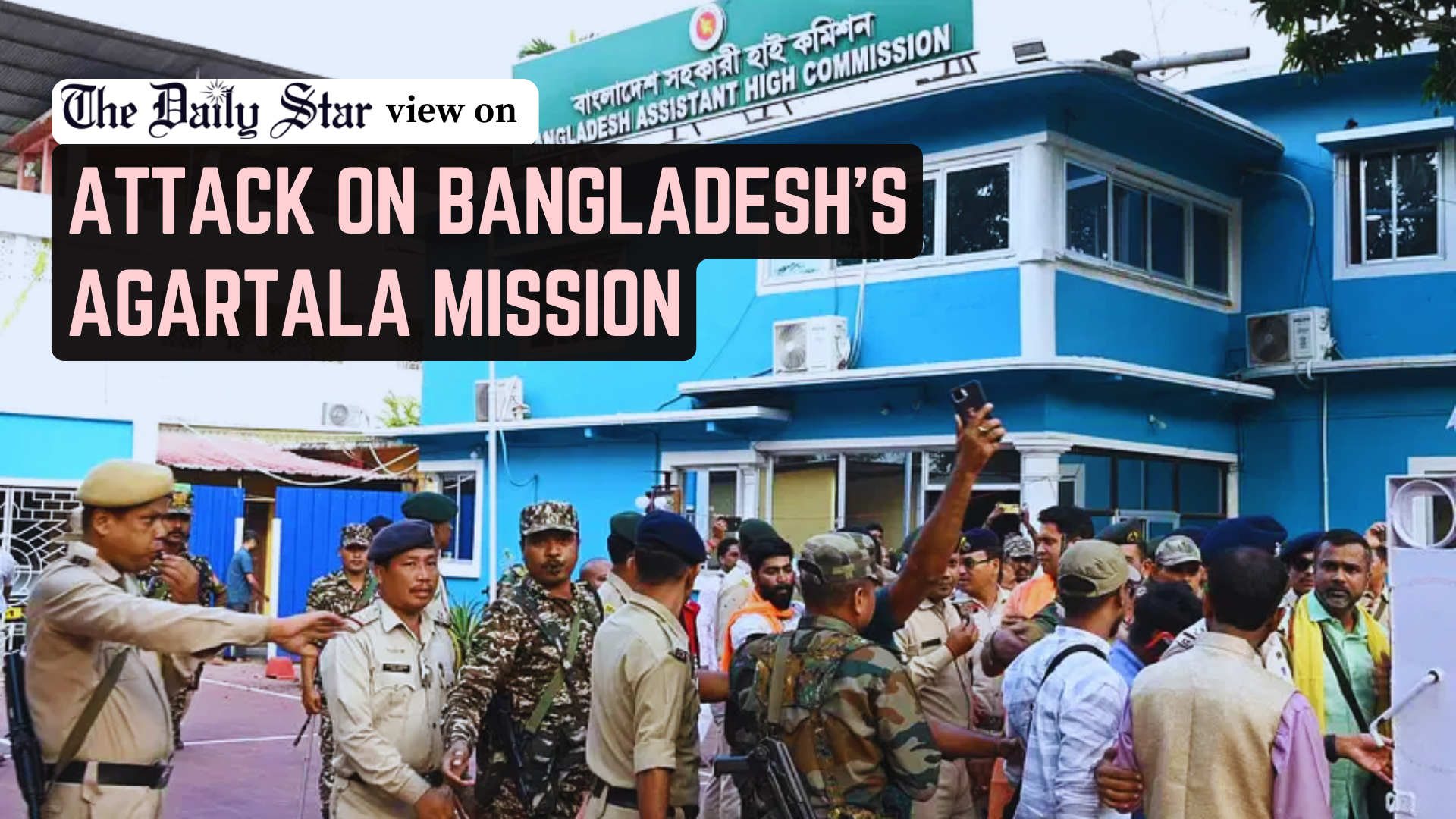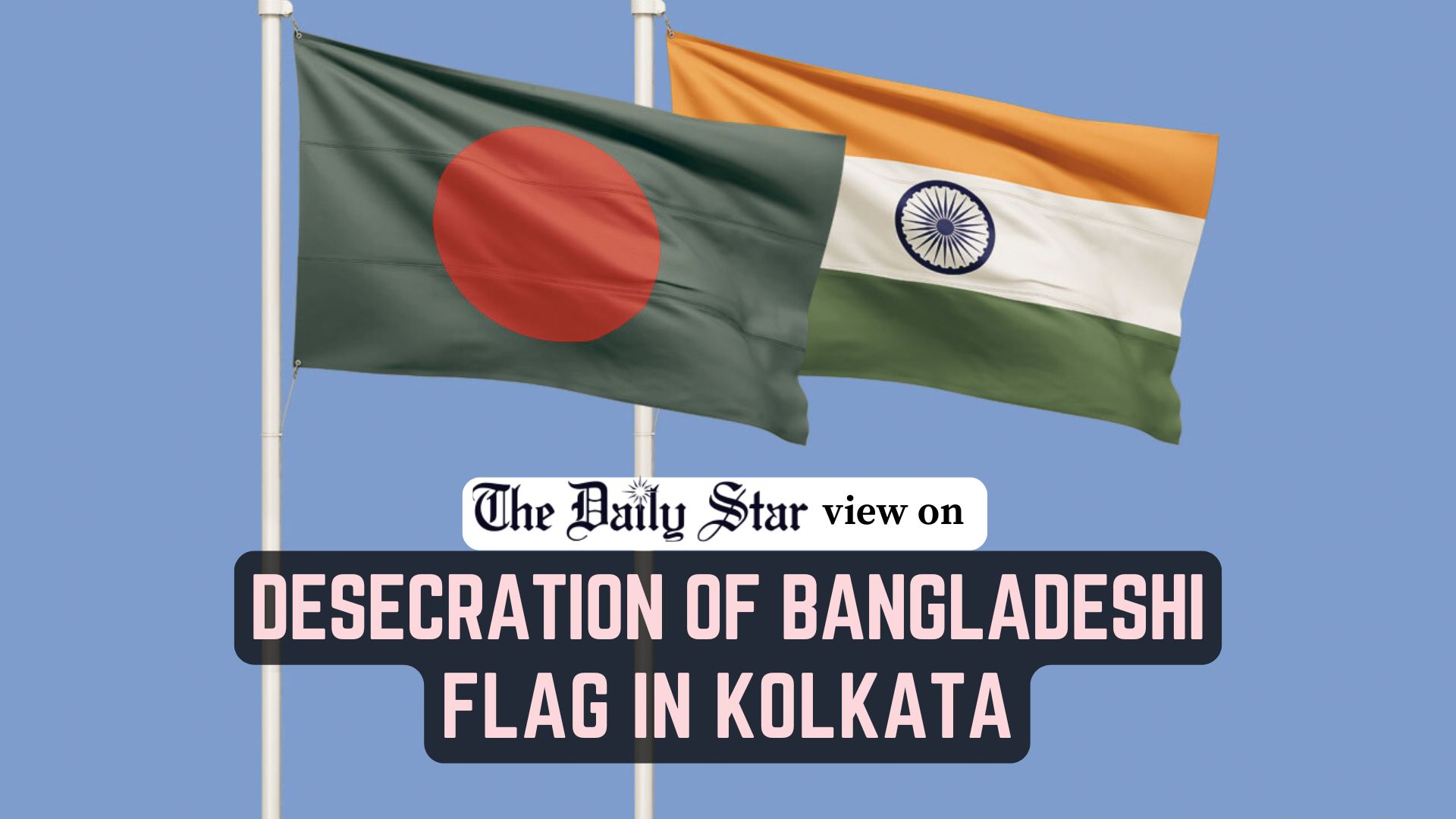We must respond firmly to the anti-Bangladesh campaign in India

The recent attacks and disruptions targeting Bangladesh's diplomatic missions in India have provoked justifiable anger from government officials, politicians, student leaders, and the public alike. Emotions are running high—as evidenced by the barrage of street protests in Dhaka and elsewhere—but so is the case in India. It is precisely during times like this that cooler heads need to prevail. We agree with the Indian high commissioner that Indo-Bangla ties cannot be reduced to a single issue. But this is a mess of India's own making, and to extricate itself from it and stabilise bilateral relations, it must help prevent the disinformation campaign over "minority persecution" that is fuelling unrest. And it must stop demonising Bangladesh.
Bangladesh, too, needs to frame its own response properly, and fast, given the continued fallout of the arrest of Hindu religious leader Chinmoy Krishna Das, with reports emerging of anti-Bangladesh posturing in different parts of India as well as hostile mobilisations along the border. It must be acknowledged that people in Bangladesh have shown commendable restraint so far, despite provocations. But much more needs to be done. The first priority is to reaffirm our commitment to national unity and continue showing restraint. Chief Advisor Prof Muhammad Yunus's initiation of dialogue with the leaders of student, political and religious bodies shows a constructive approach to this crisis, which will hopefully further consolidate our response.
Unity is also needed to highlight our pluralistic character in the face of the disinformation campaign run by sections of Indian media, which Hindutva groups and parties have been exploiting to rally domestic support and destabilise Bangladesh since the ouster of India's favoured leader, Sheikh Hasina. In this regard, the role of our religious leaders, particularly those from Hindu community, is particularly important as they can promote a collective vision of coexistence by debunking the false narrative of persecution and showcasing their commitment to national sovereignty. The authorities, at the same time, must take stricter measures to address any rights concerns of minority communities. Official investigations into past violence against minorities must also be more visible and result-oriented.
But perhaps the most important thing to do now is streamline efforts to counter the systemic propaganda on India's side, through a public relations cell if needed. In recent days, we have seen reports on circulation of posts, pictures, and videos that have later been proven to be false. In fact, such attempts have been ongoing since August 5 to exaggerate isolated incidents of minority attacks in order to bolster the narrative of persecution. Unfortunately, the Indian media continues to be a reference point for the Western media and India-linked politicians. This calls for a better response from Bangladesh so that our side of the story gets the coverage it deserves. To that end, more investigative and fact-checking initiatives will help.
The challenge we face is clearly multifaceted. But we must remain united and say no to any divisive tactics. The anti-Bangladesh and anti-Muslim politics in India will likely lose steam if we continue to be vigilant. The Indian authorities, for their part, must match their commitment to constructive bilateral relations with meaningful actions that de-escalate tensions, so that we can move forward together.



 For all latest news, follow The Daily Star's Google News channel.
For all latest news, follow The Daily Star's Google News channel. 



Comments